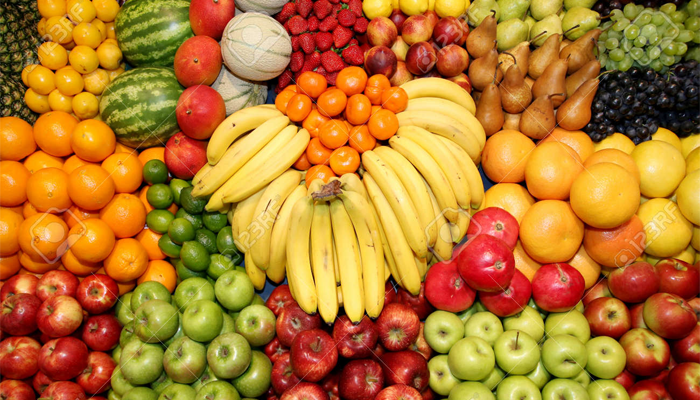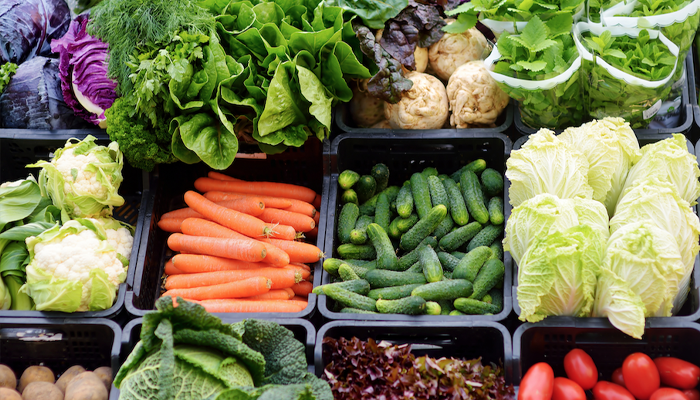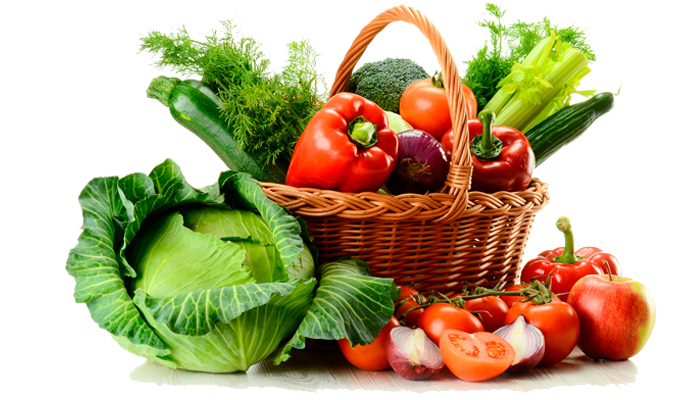
Important Of Organic Food
Looking around us, we can see people aging rapidly and succumbing to serious diseases. The main reason for this is our diet. Crops grown using excessive amounts of chemical fertilizers and pesticides are becoming the main cause of our health risks. In our today’s article we will try to know more about non-chemical food to reduce these health risks.
What is organic food?
Organically produced food is called organic food. The farming system that uses completely natural methods to produce crops without the use of artificial fertilizers and pesticides is called organic farming. This organic farming system that produces chemical and hormone free crops is organic food.
It cultivates there by preparing the land with green manure or organic manure in an environment friendly manner. At present more but unhealthy crops are being produced artificially by destroying the natural fertility of the land with pesticides and fertilizers. In fact, we are creating a death trap for ourselves.
However, it is a very popular topic these days which means healthy and nutritious food. No chemical fertilizers, pesticides, herbicides, hormone treatments, etc. are used to produce it. Crops are grown and marketed using green manures or organic fer tilizers in a completely natural way.
What are the prerequisites for being organic?
Foods labeled organic mean they are not organic. Not all organic foods in the market are 100% chemical free. Non-chemical fruits and vegetables have been found to contain only 30 percent less pesticides than conventionally grown fruits and vegetables. It means that the idea that pesticides are not used is wrong. There are five main criteria for organic farming. These are-
- The land should be chemical free for at least 3 years.
- 10 meters land should be chemical free.
- 10 meters land should be chemical free.
- If fertilizers use, they should be environmentally friendly.
- Irrigation system should be safe.
- The seeds should also be chemical free.
What are you eating in the name of organic food?

What percentage of non-chemical food is now available in the market? In fact, having an ‘organic’ label on food products does not mean that they have not used pesticides or herbicides!
If the only objective is to eat food free of harmful chemicals or pesticides, then you can eat organic food. But ‘more nutritious’ – simply looking at the label will buy stupidity at a higher price.
Because mainly because of our excessive interest in it, organic products are so expensive in the country. That is, choosing between organic and non-organic should not reduce fruit and vegetable consumption altogether.
How to identify organic food?
If you cannot distinguish between organic and non-organic food, formalin-laced food will easily come into your regular market. Some important points discusse below by which you can easily recognize non-chemical food.
cooking time
Foods with formalin or pesticides take longer to cook. Non-chemical food on the other hand cooks faster as it produce naturally.
shape
Hybrid crops look bigger and fuller. Organic crops, on the other hand, look completely natural and are pest-free.
the taste
There is a huge difference in taste between organic and non-organic foods. Chemical food has less taste and is made palatable by using more spices.
the smell
Non-organic food emits excess oils and spices. On the other hand, chemical free food gives off a beautiful and enticing taste.
structure
Inorganic foods in particular have large and unusual structures. On the other hand, non-chemical food is lighter in color and looks fresher and more appealing.
List of organic food
We have already known that all the foods that do not use any adulterants, chemical fertilizers, pesticides etc. are organic food. Many foods have the potential to be organically produced – fruits, vegetables, dairy products, meat, grains and even processed foods and drinks. Some of the most popular organic foods are:
Beef
Milk
Potatoes
Apples
Strawberries
Kale
Spinach
Peaches
Celery
Lettuce
Cucumbers
Blueberries
Green beans
What is the difference between organic food and regular food?

Apparently there is not much difference between non-chemical food and normal food. But if we want to separate these two, we have to discuss their effectors. Generally speaking, normal food is the food that we eat from the market for daily purpose without any verification. The possibility of getting non-chemical food is very less especially in urban areas. Because the products buy from the farmers in the village and marketed in the city.
In this process, many traders mix formalin with other harmful ingredients and sell it. We usually take them as normal food. On the other hand, if we want to get non-chemical food, we have to resort to farmers in our villages. It is true that even in villages, chemical fertilizers and pesticides widely use to grow crops. So if you are health conscious then consider where the food comes from before buying it. This increases the chances of finding organic products.
The difference between organic food and non-organic food is the production method. Organic food produce without the use of synthetic chemicals, pesticides and fertilizers. The taste and nutritional value of chemical free food and non-organic food are not different.
What are the benefits of organic food?
Some people would consider choosing non-chemical foods a mutual benefit. For consumers this includes:
- Fewer pesticides in the food.
- No preservatives in the food mean it is fresher when eaten.
- Non-chemical food is generally more environmentally friendly.
- Organic farming tends to be better for the environment.
- Chemical free meat has no antibiotics or growth hormones.
- Organically raised animals tend to better treate.
- Better support for local farmers.
- Less air pollution.
- Less soil pollution.
- Non-chemical foods have lower nitrate levels than inorganic foods.
- Phenolic compounds rich in anti-oxidant, anti-mutagenic, anti-inflammatory and anti-carcinogenic properties are found in significant amounts in non-chemical foods.
- Omega 3 fatty acids are more abundant in organic meat, dairy and eggs due to the quality of the livestock feed.
- Antibiotic-resistant bacteria more common in conventionally produce meat than in organic meat.
What are the Disadvantages of Organic Food?
- Non-chemical methods are relatively expensive. So non-chemical food can be consumed by everyone.
- Non-chemical foods are lower in selenium and iodine. Which helps in regulating various bodily functions and hormones.
- Don’t assume that all organic foods are healthy. There is also a tendency to market high-sugar, fat- and calorie-rich foods behind organic food labels.
Controversy over organic food
When a new idea comes before us, it is natural that there will be many arguments for and against. For some it’s just propaganda and for some it’s an opportunity to live a better life.
One thing that is certain about the conventional foods versus organic foods debate is that the latter group is free of chemicals. And there is a lot of research on its nutritional value. At some point we may be able to say for sure whether non-chemical food is more nutritious or simmilar.
However, according to our data so far, organic foods are higher in certain nutrients and lower in chemicals. Most of these chemicals are carcinogenic, meaning they cause cancer cells. Considering only this aspect, we should eat organic food as much as possible.
Here are some tips to keep in mind while buying organic food
Many parents are aware of the importance of non-chemical food among the current generation of parents. So, when you buy non-chemical food, make sure you buy the same type of food, so that even if there is a possibility of pesticides mixing, you can reduce the risk of your children being exposed to a single pesticide. Always buy as fresh produce as possible.
Some organic foods may contain high levels of fat, sugars, salt or calories, so be sure to read nutrition labels. Wash all fruits and vegetables thoroughly with water before cooking. It will help remove external pollutants like bacteria and some chemicals. You can even peel some fruits and vegetables and remove the outer skin, although this may leave some nutrients behind.
Now that you know about the many benefits of organic foods, you may be a little worried about their exorbitant prices. The higher prices are due to more expensive farming practices compared to conventional foods. Also, the price is reasonable considering the safety and nutritional value your child will gain from eating organic food.
The two are different. No external chemicals are used in organic food. And natural foods usually haven’t undergone any processing.
Nutritionally speaking, organic food and non-organic food are exactly the same. Foods like fruits and vegetables are healthy regardless of whether they are organic or not.
Of course It reduces soil pollution and soil erosion
Not at all Guidelines and calorie charts should be consulted when purchasing food.
Some studies have shown that organic milk and organic meat are higher in omega-3s (a type of healthy fat) than their conventionally raised counterparts. Some produce may be high in vitamins or antioxidants (compounds that may help protect against disease). However, in almost all studies, the differences were very small.

Leave a Reply